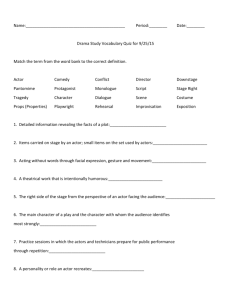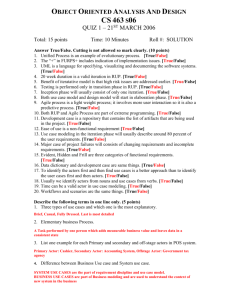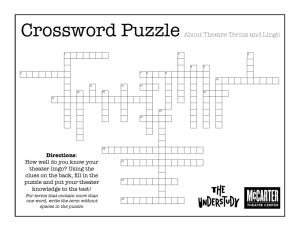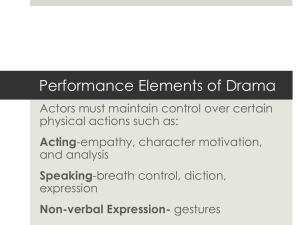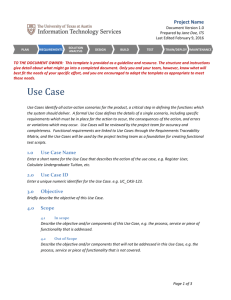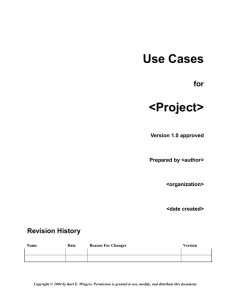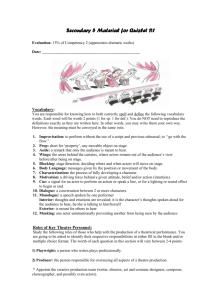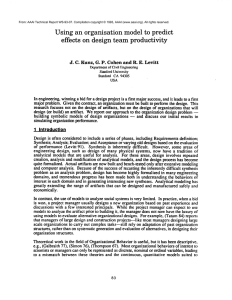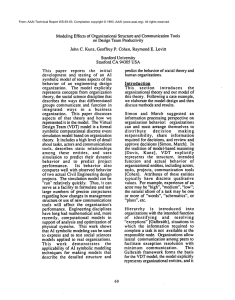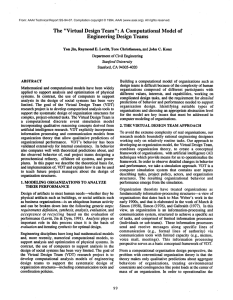STRATEGIC PLANNING FOR A NEGOTIATION OR DEALING WITH A DISPUTE
advertisement
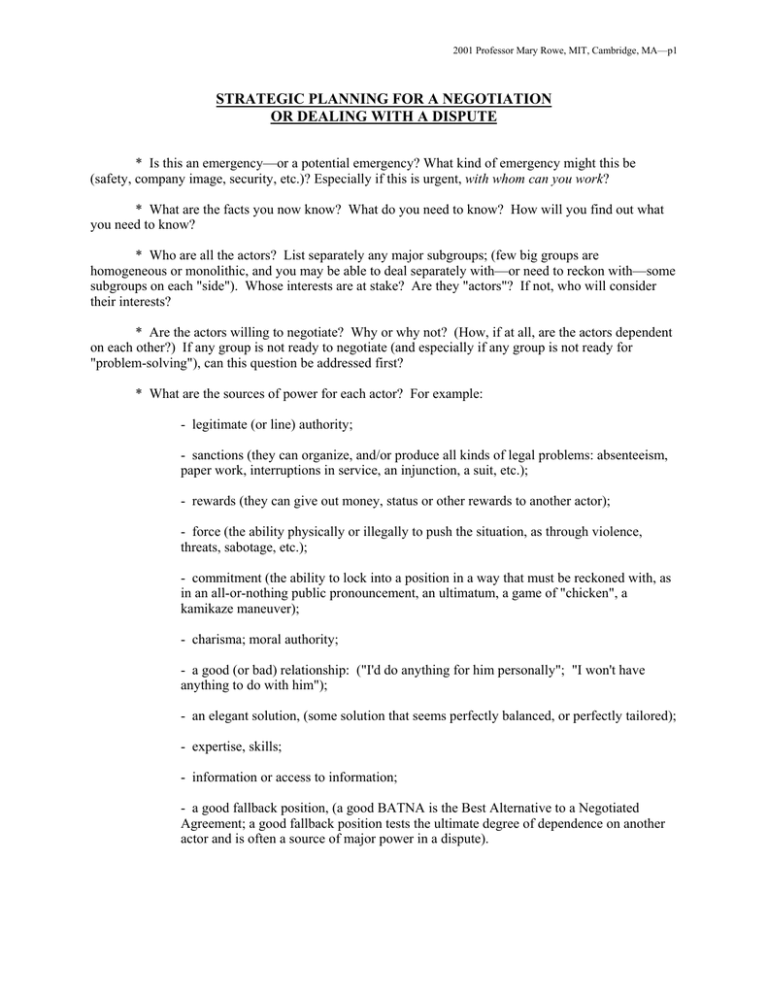
2001 Professor Mary Rowe, MIT, Cambridge, MA—p1 STRATEGIC PLANNING FOR A NEGOTIATION OR DEALING WITH A DISPUTE * Is this an emergency—or a potential emergency? What kind of emergency might this be (safety, company image, security, etc.)? Especially if this is urgent, with whom can you work? * What are the facts you now know? What do you need to know? How will you find out what you need to know? * Who are all the actors? List separately any major subgroups; (few big groups are homogeneous or monolithic, and you may be able to deal separately with—or need to reckon with—some subgroups on each "side"). Whose interests are at stake? Are they "actors"? If not, who will consider their interests? * Are the actors willing to negotiate? Why or why not? (How, if at all, are the actors dependent on each other?) If any group is not ready to negotiate (and especially if any group is not ready for "problem-solving"), can this question be addressed first? * What are the sources of power for each actor? For example: - legitimate (or line) authority; - sanctions (they can organize, and/or produce all kinds of legal problems: absenteeism, paper work, interruptions in service, an injunction, a suit, etc.); - rewards (they can give out money, status or other rewards to another actor); - force (the ability physically or illegally to push the situation, as through violence, threats, sabotage, etc.); - commitment (the ability to lock into a position in a way that must be reckoned with, as in an all-or-nothing public pronouncement, an ultimatum, a game of "chicken", a kamikaze maneuver); - charisma; moral authority; - a good (or bad) relationship: ("I'd do anything for him personally"; "I won't have anything to do with him"); - an elegant solution, (some solution that seems perfectly balanced, or perfectly tailored); - expertise, skills; - information or access to information; - a good fallback position, (a good BATNA is the Best Alternative to a Negotiated Agreement; a good fallback position tests the ultimate degree of dependence on another actor and is often a source of major power in a dispute). 2001 Professor Mary Rowe, MIT, Cambridge, MA—p2 * What are the public positions (demands) of each actor? (What can you do to forestall commitments to "positions"?) * What are the real interests of each actor? Do these include the interests of all those cited above whose "interests are at stake"? (What can you do to meet at least some of the interests of all sides?) * Brainstorm—with others if possible (and, at a later stage, with the Other Side if appropriate in collaboration)—all the logical options open to each actor. Which are constructive, and which unconstructive from your point of view (or your employer's point of view)? Which option(s) seem(s) most likely in the next, short time period? What kinds of coalitions are open to you—and to the other actors? What would these coalitions mean, especially for your own interests? * What are the policies, laws, principles and other criteria that should be used, or could be agreed upon, to decide this dispute? * What are the real-life, ("reality") constraints here (for example, shortage of time, money, other resources)? * Can you go through this list imagining you are each of the other actors? (One way to do this is to choose a Devil's Advocate in your own group, who will "be" each of the other actors, in turn, during the discussions in your own group); * Check again: Do you have enough information? Would it be cost-effective to gather more information? (List costs and benefits.) Do you have the time to wait? Should you now collect information for some probable "Phase Two" even if you have to act now on "Phase One"? (The test question for deciding whether you have enough data is, "What kind of information would make you change your mind and have you looked carefully to see if such data exist?"); * Choose strategy and tactics (who, what, when, where and how for "Phase One"); * Now think about "Phase Two." Who will be affected? Who may be happy or unhappy about this decision? Should you prepare for these reactions? (Think particularly of anyone whose "interests are at stake" whom you did not list as an "actor".) ******************** Keep in mind, the theoretical elements of success in settling a negotiation or dispute: 1. Negotiations and problem-solving have produced the maximum possible "value added." No more value can be created at this time under the constraints given; the solution is Pareto-optimal; no other solution(s) will better satisfy the set of all the interests examined. 2. No redistribution of value will give significant gains to one side without taking significantly from another; (you can't give more to A without making B feel much worse). 3. All actors believe the process was fair. 4. All actors believe this is the best possible solution under the circumstances. 5. The settlement is legal and proper. And, remember the Last Task—if possible the parties should come to see the solution as the best possible solution under the circumstances.
